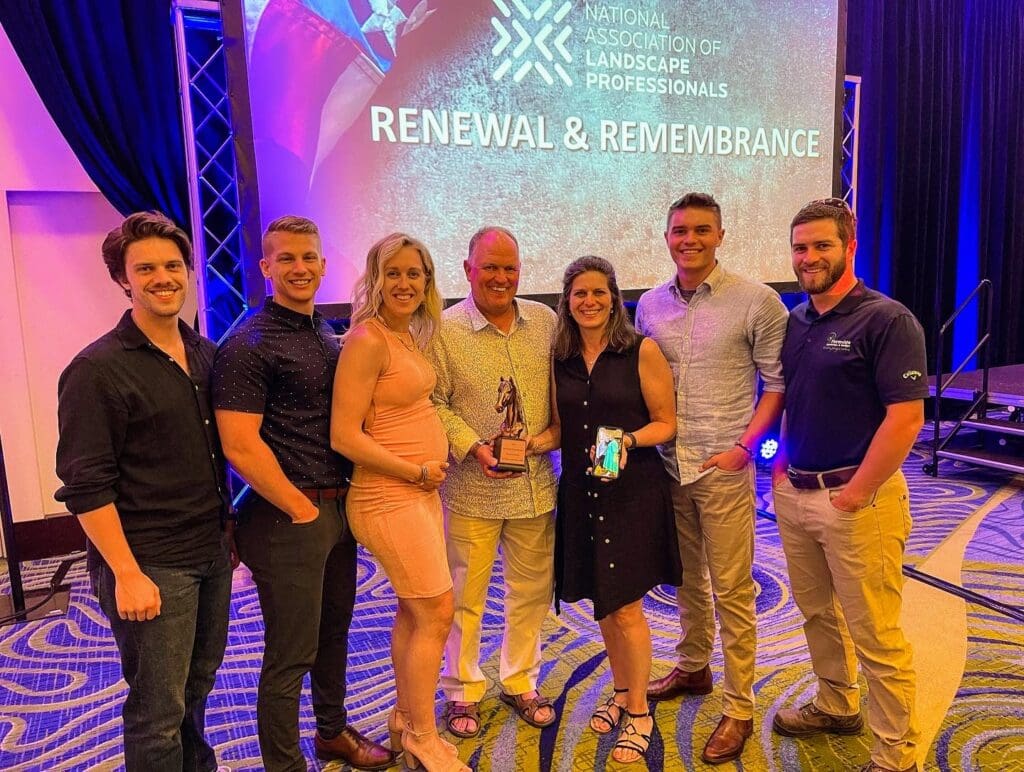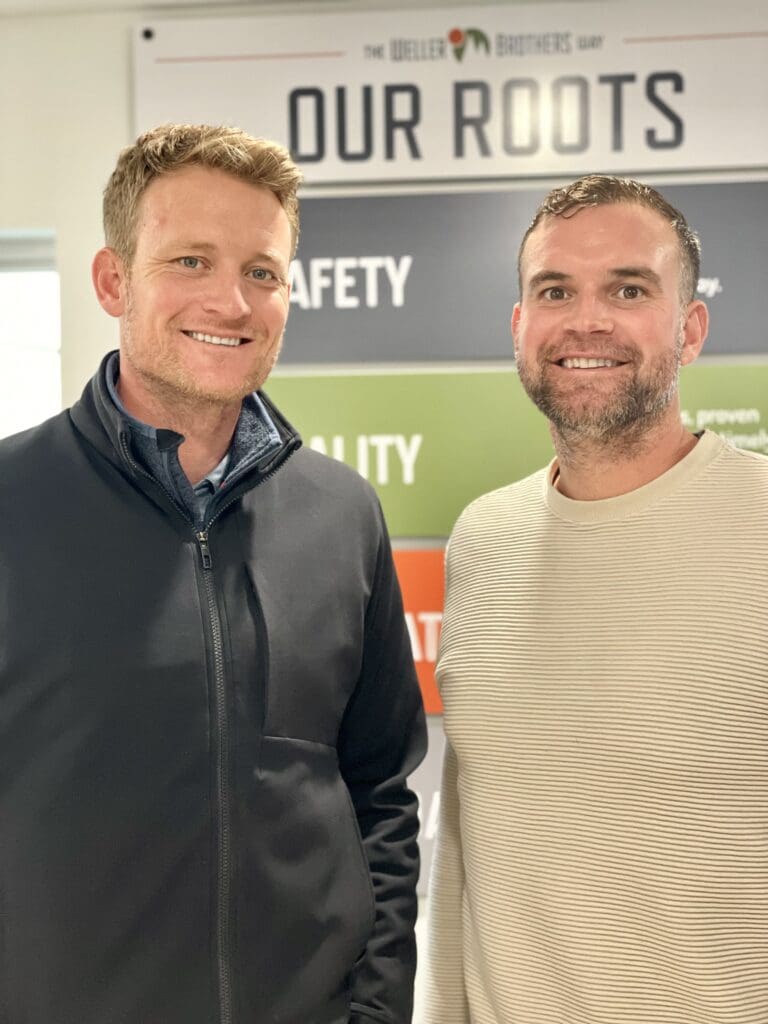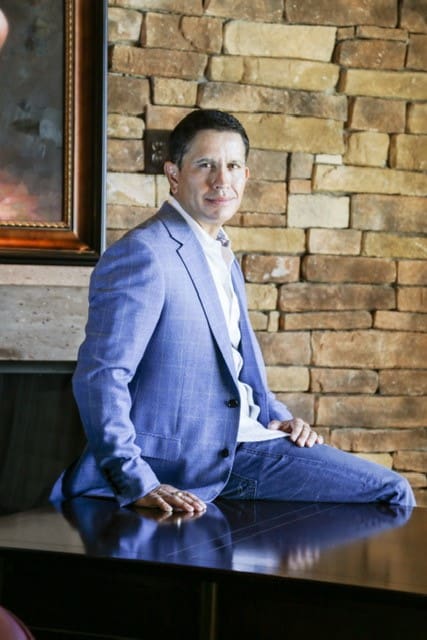
Families are complicated and when you throw in running a business, it can make things even more challenging.
However, many family-owned lawn care and landscape businesses are able to thrive because of how they handle and overcome disagreements. Check out their advice on dealing with disputes and other advice for successfully running a business with family members.
Handling Disagreements
Miles Kuperus Jr., founder and CEO of Farmside Landscape & Design, based in Sussex, New Jersey, says he doesn’t have a ton of disagreements working with his wife and children. They makes sure to iron things out and not leave issues undiscussed so they have operational clarity.

He notes that as their kids move into management roles, they may have a different perspective on things.
“When you get into the upper management side and the transition of leadership, it gets much more complicated, and it takes a lot of discussion,” Kuperus says. “That’s something that we’re working through right now. I would say that’s definitely a pitfall and personality issues could come into play.”
Likewise, Cole Weller, president and CEO of Weller Brothers Landscaping, based in Sioux Falls, South Dakota, says he and his brother Brent agree on most things.
“It can get dicey separating our management responsibilities from our ownership responsibilities,” Weller says. “Conversations around that have probably been our biggest disagreement.”
Weller says their CFO Jill Holt has learned how to mediate conversations between himself and Brent.
Jerry Maldonado, owner and vice president Maldonado Nursery & Landscaping, Inc., based in San Antonio, Texas, says the main thing he and his brother Oscar currently disagree about is their succession plan as they want to get out in the next three years and their kids are too young to take over.
Maldonado says they’ve had their ups and downs over 38 years together. The company is complex but he always tries to remember how this business was built.
“You can easily say, ‘The hell with it. I’m done with it.’ or ‘I’m mad’ or I don’t want to deal with you anymore,’ or whatever the case may be,” Maldonado says. “If you’re reminded of how hard it was to get here, and how great it was when we were younger and what we did, what we went through. It kind of centers you a little bit.”

Maldonado says they require buy in from both parties for major decisions. He says it’s very much like a marriage where if it’s not two yeses, then it’s a no. They each have to sell the other one on their ideas.
“Sometimes we don’t agree; we just don’t,” Maldonado says. “That’s when you have to employ whatever tactics or finesse to be able to sell your ideas and continue to have harmony and growth in the company. We have had tremendous growth in the last five years since Oscar and I have been together as the sole owners.”
Kuperus says it comes down to everyone respecting each other.
“With a family-run business, it does take an extra effort because you have to check family out and business in, when you’re making some decisions,” Kuperus says. “Sometimes that can become complicated because you’re wearing two different hats and how you work through it when you have family members involved. You’ll get through it, but you just have to have patience to get through it.”
Advice for Others
One way to prevent some disagreements from occurring in the first place is to set the ground rules early. Weller says you shouldn’t let small things become big things.
“Talk about the prickly stuff like management versus ownership, compensation and benefits,” Weller says. “Be open and honest with one another, speak from your heart. A family business/partnership where communication barriers are broken down, or non-existent to begin with will make everything a lot easier.”

Kuperus agrees that you should not silent on conflict. He says by being clear and concise you can avoid hurt feelings and family members can understand it’s not personal, it’s just part of business.
“Don’t sweep it under the rug,” Kuperus says. “Make sure you’re clear, concise, and decisive on the matter. It must be resolved quickly. Never let things ponder. Nothing good happens there.”
Maldonado encourages setting up a 49-51 partnership so that one partner is always able to move the company forward without total buy-in.
“It’s very hard to do that because nobody wants to be 49,” Maldonado says. “If not, just make sure that you have the same vision, the shared vision. Do you want to be a $1 million company? Do you want to be as big as you can possibly be? Do you want to do full service? Much like a marriage, the more you have in common, the more likely you are to go long-term in this marriage and be successful.”
Maldonado says polar opposites can work when it comes to roles in the business but you need to have the same goals as one family member wanting to reach $1 million and the other wanting to grow as large as possible is a major deal breaker.
It’s also important to understand when it might be best for a family member to step away from the business. Kuperus notes that you never want to hold a family member back. He says this was the case for his oldest son as he realized he wasn’t a good fit and wasn’t reaching his fullest potential with the company.
“It was the best thing we ever did,” Kuperus says. “We recognized that he had so much potential, and we encouraged him to fly out, and that was empowering for him.”




